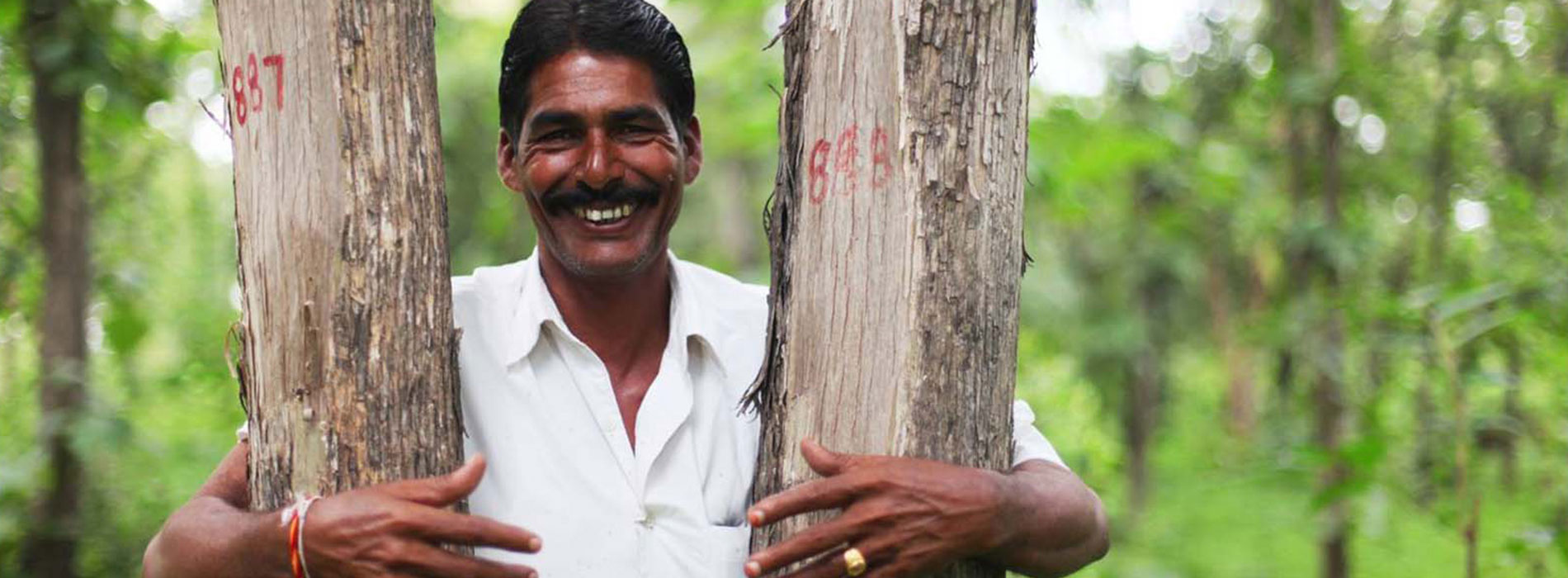HOW DOES FSC DRIVE SUSTAINABILITY ?
The demand for wood and paper products is increasing around the world. Wood is commonly used in the construction industry, furniture, handicrafts and production of paper. India is the fastest growing market for paper globally and is poised for a big leap in sync with economic and population growth. Without sustainable standards of procuring and producing such products, the world could face irreparable destruction of tropical forests, loss of natural habitat and biodiversity.
By setting global standards that define responsible forest management, both environmentally and socially, FSC certification helps conserve forests around the world and secure the future of biodiversity, people and the communities they support.
By choosing to obtain FSC certification as a manufacturer, buyer, and brand; or choosing to buy FSC labelled forest products as a consumer, you can contribute to environmentally and socially responsible forestry.
Environmental benefits of FSC certified products
FSC's environmental criteria recognise that forest management should conserve biological diversity and its values; maintain the integrity and ecological functions of the forest; and protect threatened and endangered species and their habitats. An FSC certified forest aims to ensure that:
• Harvested trees are replaced or allowed to regenerate naturally.
• Parts of the forest are protected entirely, in order to protect rare animals and plants.
Social benefits of FSC certified products
FSC engages with local small-scale producers, indigenous people, forest workers and communities directly affected by FSC certified forest operations. FSC certification helps uphold the rights of workers and communities living around forests by ensuring:
• Protection of legal and customary rights of indigenous people to access the forest for collection of food, fuelwood, building material, medicinal plants and other forest resources that support their livelihoods. Sacred sites inside forests are protected from felling.
• Employment of local workers to manage the forest and provision for safety equipment, relevant training and a decent salary.
FSC and Sustainable Development Goals
FSC certification also contributes significantly to several Sustainable Development Goals related to environment, social and economic justice. These include:
• Goal 1: No Poverty
• Goal 2: Zero Hunger
• Goal 8: Decent work and Economic growth
FSC's forest standards require payment of reasonable wages, protection of forest workers and employment of local people. In this way, FSC certification contributes to poverty reduction, ending hunger and decent work and economic growth.
• Goal 5: Gender equality – FSC standards require adherence to the International Labour Organisation’s core conventions, including discrimination against gender.
• Goal 6: Clean water and Sanitation – FSC certified forests are obliged to avoid negative impacts on water quality and quantity. Therefore, they contribute to protecting and restoring natural watercourses and water bodies.
• Goal 12: Responsible consumption and production – This is a main premise of FSC certification. In enables sustainability across a product’s supply chain, thereby empowering everyone – from the manufacturer to the consumer – to be responsible.
• Goal 13: Climate Action – Forests play a critical role in climate regulation. By conserving forests, FSC contributes to increasing carbon sinks.
• Goal 15: Life on Land – By promoting sustainable forest management, FSC certification contributes to conserving and restoring terrestrial ecosystems.
